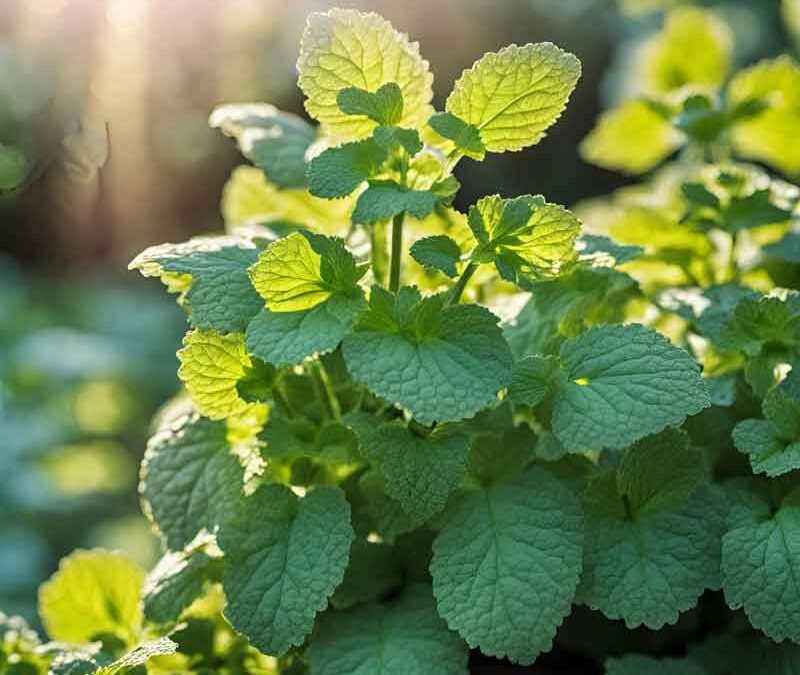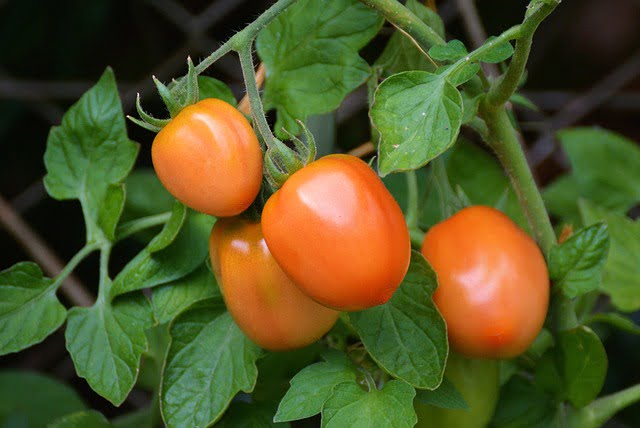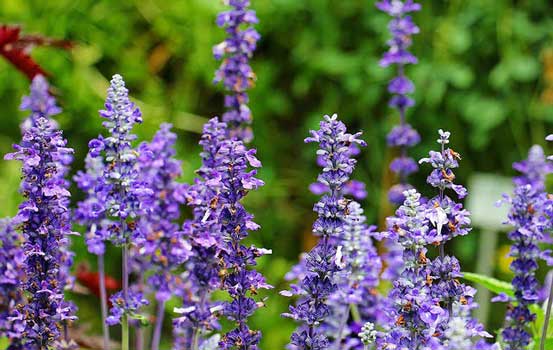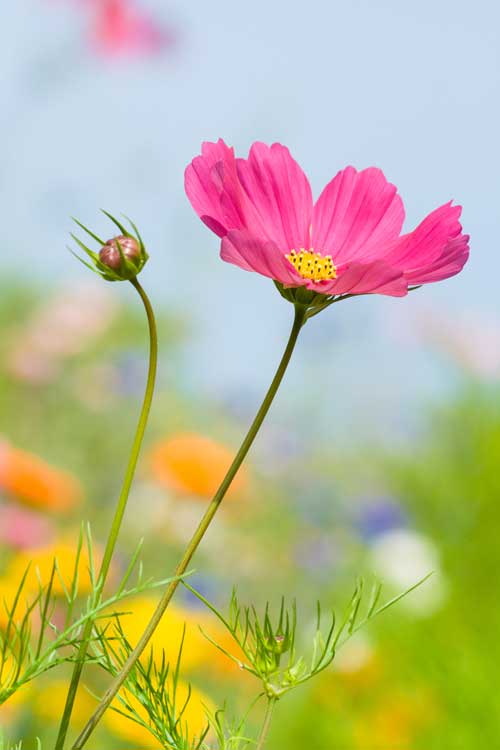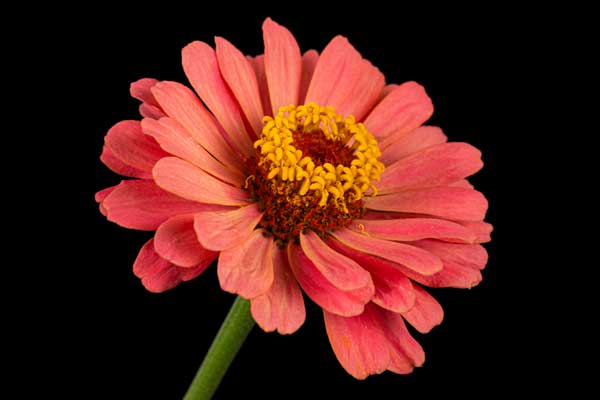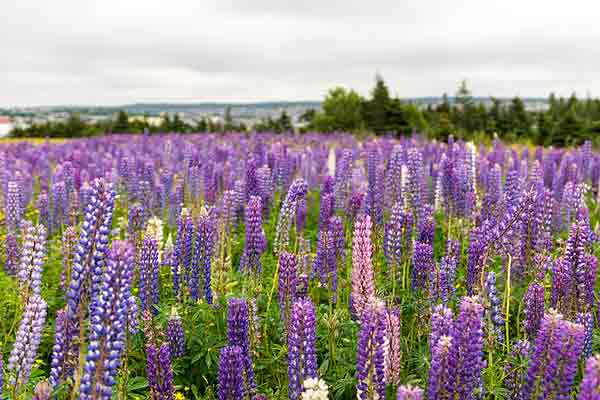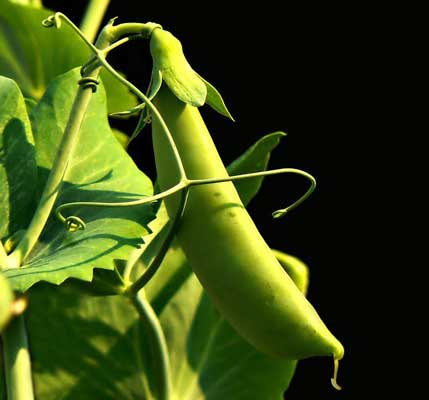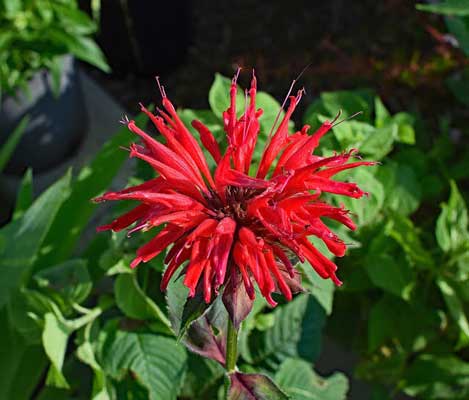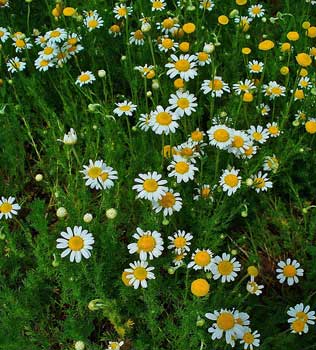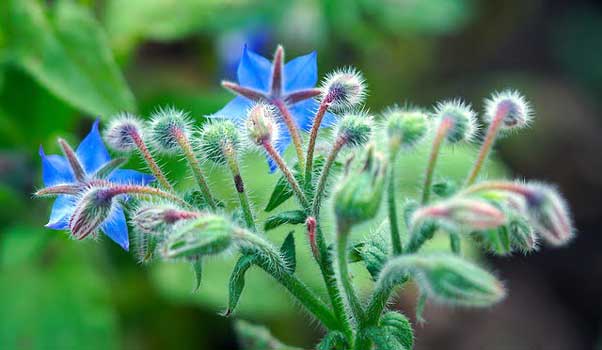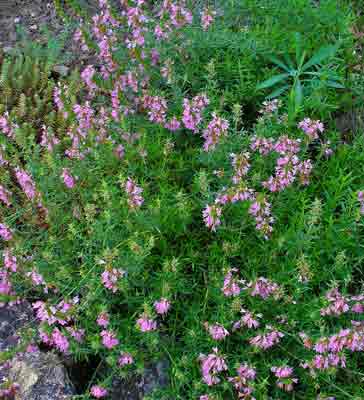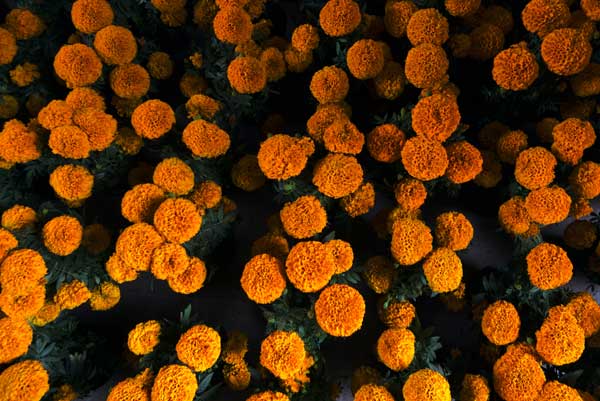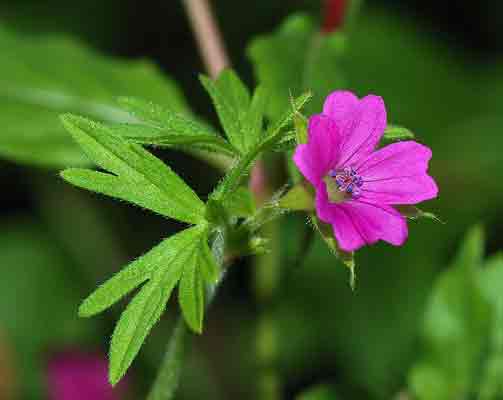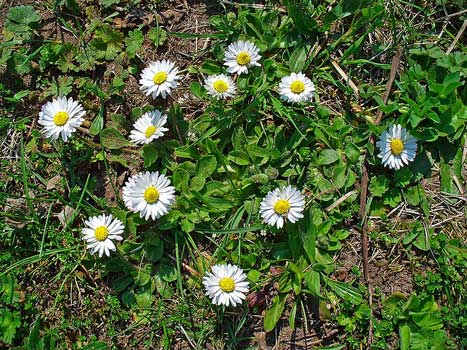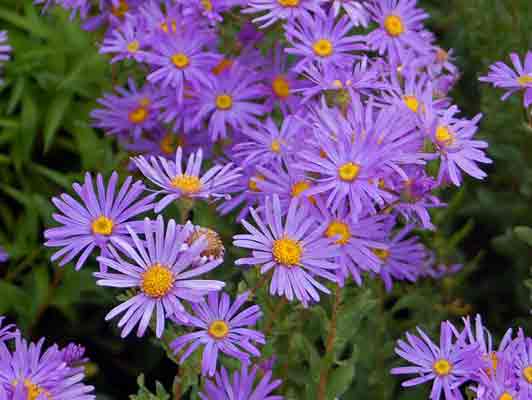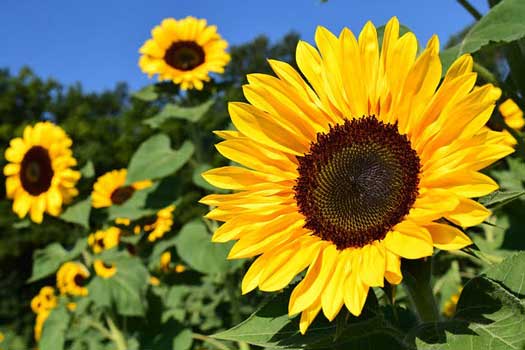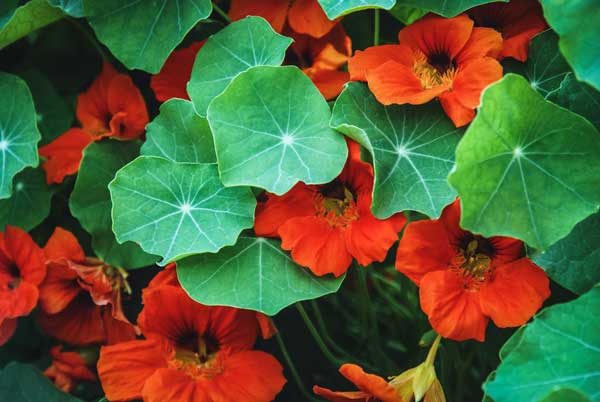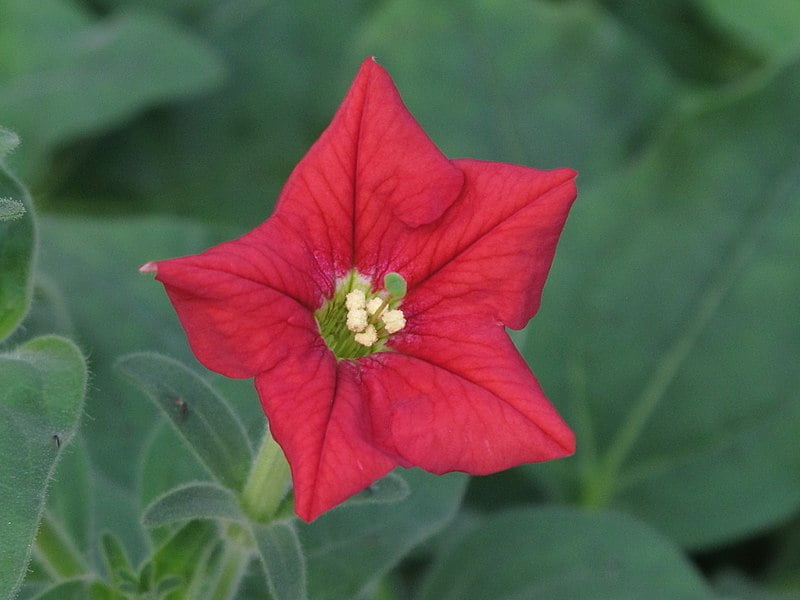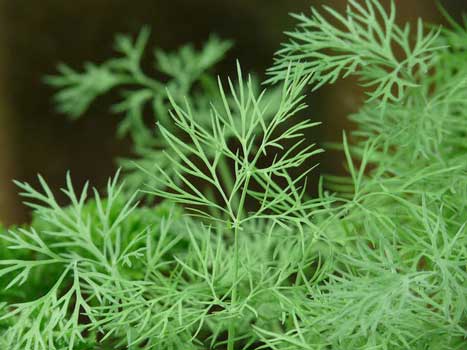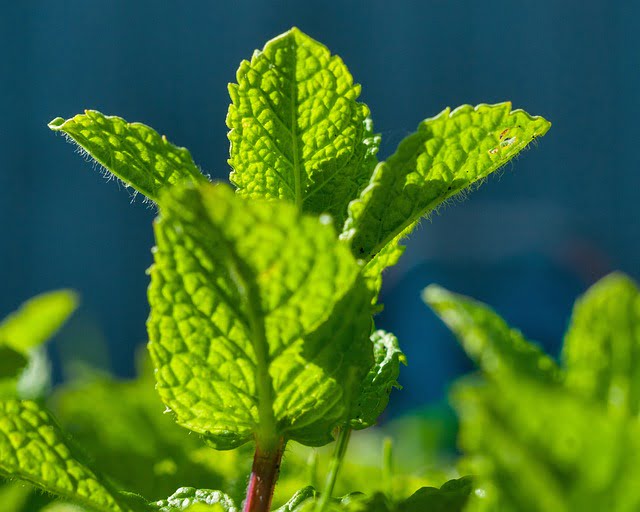Understanding Lemon Balm
Lemon balm (Melissa officinalis) is a delightful, fragrant herb belonging to the mint family. With its lemony aroma and bright green leaves, it adds a refreshing touch to any garden. This versatile herb is not only a treat for the senses but also a powerhouse in both culinary and medicinal uses.
Lemon Balm Plant Size
Lemon balm companion plant grows in bushy clumps, reaching lemon balm height of 2-3 feet. Its growth is robust and spreading, making it a great choice for ground cover. It produces small white or pale yellow flowers that attract bees and other pollinators, enhancing the biodiversity of your garden.
Lemon Balm Perennial Nature and Hardiness Zones
As a perennial, lemon balm comes back year after year, providing consistent beauty and utility. It thrives in USDA hardiness zones 4-9, making it suitable for a wide range of climates. This resilience makes it a favorite among gardeners looking for low-maintenance, enduring plants.
Optimal Growing Conditions
Lemon balm flourishes in well-drained soil with a pH between 6.7 and 7.3. It prefers full sun but can tolerate partial shade, making it adaptable to various garden spots. Regular watering is essential, especially in hot, dry weather, but be careful not to overwater, as lemon balm does not like soggy soil.
Lemon Balm Care and Maintenance
Caring for lemon balm is straightforward. It prefers well-drained soil and full sunlight but can tolerate partial shade. Regular watering is important, but avoid overwatering. Lemon balm is winter-hardy in many zones, making it a low-maintenance addition to your garden. To propagate lemon balm, you can divide the plants or take cuttings.
Best Companion Plant for Lemon Balm
Lemon balm is a fantastic addition to your garden, offering numerous benefits to its companions. Here are some of the best companion plant lemon balm :
Companion Plant Lemon Balm Vegetables
Tomatoes
Lemon balm helps deter pests that commonly affect tomatoes. By planting lemon balm near your tomatoes, you can reduce the presence of harmful insects and enjoy a healthier tomato crop.
Beets
Lemon balm helps deter pests that commonly affect beets, such as aphids and beet leaf miners. By planting lemon balm near beets, you can reduce the need for chemical pesticides and promote healthier beet growth.
Melons
Lemon balm can improve the growth and flavor of melons. The aromatic properties of lemon balm help to create a more favorable growing environment for your melons, leading to a sweeter and more abundant harvest.
Onions
Lemon balm helps to keep pests away from onions. This beneficial herb acts as a natural insect repellent, making it a great companion for your onion plants.
Cabbage Family (Kale, Broccoli, Brussels Sprouts, Cauliflower)
Lemon balm repels pests that typically target cabbage family members. Planting lemon balm near kale, broccoli, Brussels sprouts, or cauliflower can help protect these vegetables from common pests, ensuring a robust and healthy garden.
Companion Plant Lemon Balm Herbs
Basil
Both lemon balm and basil benefit from each other’s presence, enhancing growth and flavor. When planted together, these herbs can improve each other’s growth conditions and intensify their flavors.
Sage
Lemon balm and sage make a strong team for pest control. Planting these herbs together can create a protective barrier against pests, ensuring a healthier garden.
Rosemary
Lemon balm and rosemary together can help deter pests. This powerful duo works well in keeping your garden free from unwanted insects.
Flowers and Pollinator-Friendly Plants
Cosmos
Cosmos flowers pair well with lemon balm, attracting beneficial insects and adding beauty to your garden. These vibrant flowers are excellent for drawing pollinators.
Zinnias
Zinnias are perfect companions for lemon balm, attracting pollinators and enhancing the garden’s visual appeal. Their bright colors bring life to your garden space.
Lupine
Lupine plants complement lemon balm by attracting pollinators. These tall, striking flowers add height and interest to your garden.
Poppy
Poppies work well with lemon balm, drawing pollinators and adding a splash of color. Their delicate flowers attract bees and other beneficial insects.
Echinacea
Echinacea, or coneflowers, are excellent companions for lemon balm. These hardy flowers attract pollinators and add a beautiful touch to your garden.
Flowers and Pollinator-Friendly Plants
Sweet Peas
Sweet peas pair beautifully with lemon balm, attracting pollinators and adding fragrance to your garden. Their delicate blooms and sweet scent make them a charming addition.
Bee Balm
Bee balm is a natural companion for lemon balm, attracting bees and other pollinators. This vibrant flower enhances biodiversity and supports healthy pollination.
Chamomile
Chamomile complements lemon balm by attracting beneficial insects and providing calming herbal benefits. Its daisy-like flowers add a cheerful touch to the garden.
Borage
Borage pairs well with lemon balm, attracting pollinators and improving soil health. Its blue star-shaped flowers add beauty and attract bees.
Hyssop
Hyssop is a great companion for lemon balm, attracting pollinators with its aromatic flowers. It also provides medicinal and culinary benefits, making it a versatile garden addition.
Pest-Repelling Companion Plant Lemon Balm
Marigolds
Known for their pest-deterring properties, marigolds are excellent companions for lemon balm. They repel a variety of garden pests and add vibrant color to your garden.
Geraniums
Geraniums help repel common garden pests, making them a great match for lemon balm. Their scented leaves and bright flowers enhance the garden’s aesthetics and health.
Daisies
Daisies deter insects and pests, working well with lemon balm to protect your garden. Their cheerful blooms attract beneficial insects.
Asters
Asters provide pest control and attract pollinators, making them ideal companions for lemon balm. Their late-season blooms add color and life to the garden.
Sunflowers
Sunflowers are excellent for deterring pests and attracting beneficial insects. They pair well with lemon balm, adding height and visual interest to your garden.
Nasturtiums
Effective at repelling pests, nasturtiums are perfect companions for lemon balm. Their bright flowers are also edible and add a peppery flavor to salads.
Petunias
Petunias are known for their pest-repelling abilities, making them great partners for lemon balm. Their colorful blooms brighten up any garden space.
Dill
Dill works well with lemon balm to keep pests at bay. This herb attracts beneficial insects and supports healthy plant growth.
Mint
Another member of the mint family, mint and lemon balm can work together to repel pests. Be mindful of their spreading nature and plant them in contained areas.
Incorporating these companion plants with lemon balm can enhance your garden’s health, beauty, and productivity. By choosing the right plants, you create a thriving, pest-resistant environment that supports a diverse ecosystem.
Companion Plant Lemon Balm Special Considerations
Managing Rapid Growth
Lemon balm (Melissa officinalis) is known for its rapid growth, which can sometimes overwhelm other plants in your garden. To manage this, regular pruning is essential. Trim the plant back to keep it from spreading too far and to maintain a tidy appearance. Using containers can also help control its growth, preventing it from taking over garden beds.
To prevent lemon balm from crowding out other plants, you can use barriers or plant it in dedicated herb gardens. Ensuring proper spacing between lemon balm and its garden companions allows for better air circulation and reduces competition for nutrients. Regularly monitor its growth and prune as needed to maintain balance in your garden.
What Not to Plant with Lemon Balm
Lemon balm thrives in well-drained soil with full to partial sunlight and regular watering but does not like waterlogged conditions. Avoid planting lemon balm with plants that need very different conditions, such as succulents or cacti, which prefer dry, sandy soil and minimal watering. Additionally, plants like lavender, which prefer drier soil, are not good companions. Matching plants with similar growing needs ensures a harmonious and productive garden.
Fennel: It can inhibit the growth of many plants, including lemon balm.
Benefits and Uses of Lemon Balm
Attracting Beneficial Insects
Lemon balm is excellent for attracting beneficial insects such as bees and butterflies. These pollinators are crucial for a healthy garden and help ensure your plants are fertilized and productive.
Preventing and Managing Pests and Diseases
Lemon balm is relatively resistant to pests and diseases, but keeping an eye on its health is important. Regularly inspect for signs of lemon balm pests and diseases, and take action if needed to keep your plant healthy.
Harvesting and Storing Lemon Balm
Harvesting lemon balm is simple: just snip off the leaves as needed. For longer storage, you can dry the leaves and store them in an airtight container. This allows you to enjoy the benefits of lemon balm year-round.
Culinary and Medicinal Uses of Lemon Balm
Use in Herbal Teas and Culinary Dishes
Lemon balm is a versatile herb used in various culinary dishes and beverages. Its fresh, lemony flavor makes it a wonderful addition to herbal teas, adding a refreshing taste that also provides numerous health benefits. You can use lemon balm in salad dressings, sauces, and even lemon balm cocktails. Its aromatic leaves enhance the flavor of baked goods and other culinary uses, making it a favorite in the kitchen.
Lemon Balm Medicinal Uses
Lemon balm is renowned for its medicinal uses, offering numerous health benefits:
- Stress Relief: Lemon balm tea is popular for its calming effects, helping to reduce stress and anxiety. This makes it a valuable herb for those looking to improve their mental well-being.
- Digestive Issues: Lemon balm can help soothe digestive issues such as bloating and indigestion. Its gentle, soothing properties make it an excellent remedy for upset stomachs.
- Cold Sores: The antiviral properties of lemon balm make it effective in treating cold sores. Applying lemon balm extract to cold sores can speed up healing and reduce discomfort.
By incorporating lemon balm into your garden, you can enjoy its many benefits, from culinary uses to pest control and lemon balm medicinal benefits. With proper care and placement, lemon balm will thrive, contributing to a beautiful, fragrant, and productive garden.
FAQ: Companion Plant Lemon Balm
Is Lemon Balm a Good Companion Plant?
Yes, lemon balm is an excellent companion plant. Its aromatic leaves help repel pests, and it attracts beneficial insects such as bees and butterflies. Lemon balm also improves the growth and flavor of neighboring plants, making it a valuable addition to any garden.
What Can I Plant Next to Lemon Balm?
Lemon balm pairs well with a variety of plants, including:
- Vegetables: Tomatoes, melons, and members of the cabbage family (kale, broccoli, Brussels sprouts, cauliflower).
- Herbs: Basil, rosemary, sage.
- Flowers: Cosmos, zinnias, lupine, poppies, allium, four o’clock, rudbeckia, echinacea.
These companions benefit from lemon balm’s pest-repelling properties and its ability to attract pollinators.
Can You Plant Lemon Balm and Mint Together?
Yes, you can plant lemon balm and mint together. Both belong to the mint family and share similar growing conditions. However, be cautious, as both plants are vigorous growers and can become invasive. Planting them in separate containers or using barriers can help control their spread.
How Big Does Lemon Balm Grow?
Lemon balm typically grows to about 2 to 3 feet (60 to 90 cm) in height and spreads up to 2 feet (60 cm) wide. Regular pruning can help manage its size and prevent it from becoming too bushy.
What Not to Plant with Lemon Balm?
Avoid planting lemon balm with plants that compete for the same nutrients or have very different growing requirements. Examples include:
- Different Growing Conditions: Succulents, cacti, lavender.
These plants either compete for resources or require different soil and watering conditions, which can hinder their growth when planted with lemon balm.
Name some Lemon Balm Companion Vegetables ?
Lemon balm is an excellent companion for various vegetables, such as:
- Tomatoes: Lemon balm helps deter pests that affect tomatoes.
- Melons: It can improve the growth and flavor of melons.
- Cabbage Family: Kale, broccoli, Brussels sprouts, and cauliflower benefit from lemon balm’s pest-repelling properties.
Planting these vegetables alongside lemon balm can enhance their growth and protect them from common garden pests.
Do Lemon Balm Plants Flower?
Yes, lemon balm plants produce small, white or pale yellow flowers in late spring to early summer. These flowers are attractive to bees and other pollinators, contributing to a healthy garden ecosystem.
What is the Height of Lemon Balm Plants?
Lemon balm plants typically grow to a height of about 1 to 2 feet (30 to 60 cm) tall. However, under optimal growing conditions, they can sometimes reach up to 3 feet (90 cm) in height.
What Hardiness Zone is Suitable for Lemon Balm?
Lemon balm is a hardy perennial herb that thrives in USDA hardiness zones 4 to 9. It can tolerate a wide range of temperatures but prefers moderate climates with well-drained soil and full to partial sunlight.
How Do I Grow Lemon Balm?
To grow lemon balm, choose a sunny location with well-drained soil. Plant seeds or seedlings in the spring after the danger of frost has passed. Keep the soil consistently moist but not waterlogged, and fertilize lightly every few weeks. Regular pruning helps control its growth and encourages bushier growth.
How to Propagate Lemon Balm?
Lemon balm can be easily propagated through division, cuttings, or seeds. Division involves separating mature plants into smaller sections and replanting them. Cuttings can be taken from healthy stems and rooted in water or moist soil. Seeds can be sown directly into the garden or started indoors and transplanted once established.
Is Lemon Balm an Effective Mosquito Repellent?
Yes, lemon balm contains natural compounds that repel mosquitoes, making it a useful addition to your garden or outdoor living spaces. Simply crush the leaves and rub them on your skin to help deter mosquitoes. Additionally, you can plant lemon balm near outdoor seating areas to enjoy its mosquito-repellent properties while relaxing outdoors.
Conclusion Companion Plant Lemon Balm
Incorporating companion plants for lemon balm into your garden offers numerous benefits, making Lemon Balm an invaluable companion plant. Its aromatic leaves not only enhance the garden’s fragrance but also repel pests and attract beneficial insects. Whether you’re growing vegetables like tomatoes and melons or herbs such as basil and rosemary, lemon balm can significantly improve their growth and health. However, be mindful of its rapid growth and ensure it doesn’t compete with plants that require different growing conditions.
By understanding the needs of lemon balm and its best companions, you can create a harmonious and thriving garden. Lemon balm’s versatility and numerous benefits make it a must-have for any garden enthusiast. For anyone looking to improve their garden’s ecosystem, using lemon balm as a companion plant is a smart and rewarding choice.
Planting lemon balm alongside your favorite vegetables, herbs, and flowers not only enhances their flavor and growth but also contributes to a vibrant and pest-resistant garden. So, embrace the benefits of this wonderful herb and enjoy a more productive and beautiful garden with lemon balm as your trusted companion plant.

